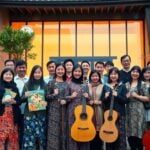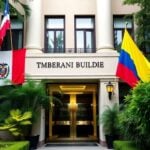Fellowship recommendation letters play a pivotal role in the application process for various academic and professional opportunities. These letters serve as a testament to a candidate’s qualifications, character, and potential for success in their chosen field. As such, they are not merely formalities; they are critical components that can significantly influence the selection committee’s decision.
A well-crafted recommendation letter can illuminate a candidate’s strengths, provide context for their achievements, and ultimately help them stand out in a competitive pool of applicants. Writing a recommendation letter for a fellowship requires careful consideration and a deep understanding of the candidate’s background and aspirations. It is essential to convey not only the candidate’s academic and professional qualifications but also their personal qualities that make them an ideal fit for the fellowship program.
This article will explore the key elements of an effective recommendation letter, offering practical tips and insights to help you craft a compelling narrative that showcases the candidate’s unique attributes.
Understanding the Purpose of the Recommendation Letter
The primary purpose of a recommendation letter is to provide an external perspective on the candidate’s abilities and potential. It serves as a validation of the applicant’s skills and experiences, offering insights that may not be fully captured in their resume or personal statement. Selection committees often rely on these letters to gauge how well candidates will fit into their programs and contribute to their fields.
Therefore, it is crucial to understand that your letter should not only affirm the candidate’s qualifications but also provide context that highlights their suitability for the fellowship. Moreover, a recommendation letter can help bridge the gap between the candidate’s past experiences and their future aspirations. By articulating how the candidate’s background aligns with the goals of the fellowship, you can help the committee envision the applicant’s potential impact within the program.
This alignment is essential, as it demonstrates that the candidate is not only qualified but also genuinely motivated to leverage the fellowship experience for personal and professional growth.
Highlighting the Candidate’s Qualifications and Achievements
When writing a recommendation letter, it is vital to highlight the candidate’s qualifications and achievements in a manner that resonates with the fellowship’s objectives. Begin by outlining their academic credentials, relevant work experience, and any notable accomplishments that set them apart from other applicants. This could include awards, publications, or leadership roles that showcase their expertise and commitment to their field.
In addition to listing qualifications, it is important to contextualize these achievements within the framework of the fellowship program. For instance, if the fellowship emphasizes innovation in research, you might want to discuss how the candidate has demonstrated creativity in their previous projects or how they have contributed to groundbreaking work in their area of study. By aligning their accomplishments with the fellowship’s mission, you reinforce the candidate’s suitability and potential for success.
Providing Specific Examples and Evidence of the Candidate’s Abilities
To create a compelling recommendation letter, it is essential to provide specific examples that illustrate the candidate’s abilities. Rather than making broad statements about their skills, delve into particular instances where they have excelled or overcome challenges. This could involve recounting a project where they demonstrated exceptional analytical skills or a situation where they showed remarkable leadership under pressure.
Using anecdotes not only adds depth to your letter but also makes it more memorable for the selection committee. For example, if the candidate played a crucial role in a team project that resulted in significant findings or outcomes, describe their contributions in detail. Highlighting these specific instances allows you to paint a vivid picture of the candidate’s capabilities and reinforces your endorsement with tangible evidence.
Addressing the Candidate’s Potential for Success in the Fellowship Program
A strong recommendation letter should also address the candidate’s potential for success within the fellowship program itself. This involves discussing how their skills, experiences, and aspirations align with what the fellowship offers. Consider what unique perspectives or contributions they could bring to the program and how these align with its goals.
Additionally, it is beneficial to reflect on how the fellowship experience could further enhance the candidate’s development. For instance, if they are seeking to expand their network or gain exposure to new methodologies, articulate how these opportunities would be instrumental in helping them achieve their long-term career objectives. By connecting their potential for success with the specific benefits of the fellowship, you provide a compelling argument for why they should be selected.
Emphasizing the Candidate’s Personal Qualities and Character
Academic Excellence is Not Enough
While qualifications and achievements are critical components of a recommendation letter, personal qualities and character traits are equally important. Fellowship programs often seek candidates who not only excel academically but also possess integrity, resilience, and a collaborative spirit.
Reflecting on the Candidate’s Interpersonal Skills
Take time to reflect on the candidate’s interpersonal skills, work ethic, and ability to navigate challenges. This will give you valuable insights into their personal qualities and character traits.
Sharing Personal Experiences
For instance, if you have witnessed the candidate demonstrate empathy or support for peers during difficult times, share those experiences. Highlighting these personal attributes can help paint a holistic picture of who they are as an individual. It also reassures the selection committee that they are not only choosing someone who is capable but also someone who will contribute positively to the fellowship community.
Structuring the Letter for Clarity and Impact
The structure of your recommendation letter is crucial for ensuring clarity and impact. Start with a strong opening paragraph that introduces yourself and your relationship with the candidate. Clearly state your endorsement and provide context for your perspective on their qualifications.
Following this introduction, organize your letter into distinct sections that address each key point: qualifications, specific examples, potential for success, and personal qualities. Use clear headings or transitions between sections to guide readers through your narrative seamlessly. Conclude with a powerful closing statement that reiterates your support for the candidate and encourages the selection committee to consider them favorably.
Conclusion and Final Tips for Writing a Strong Recommendation Letter
In conclusion, writing an effective fellowship recommendation letter requires thoughtful consideration of various elements that contribute to a compelling narrative. By understanding the purpose of the letter, highlighting qualifications and achievements, providing specific examples, addressing potential for success, emphasizing personal qualities, and structuring your letter clearly, you can create a powerful endorsement that resonates with selection committees. As you embark on this writing process, remember to be authentic in your praise while remaining honest about any areas for growth.
Tailor your letter to reflect both your unique insights into the candidate’s abilities and how they align with the fellowship’s goals. Finally, don’t hesitate to reach out to the candidate for additional information or clarification on their aspirations; this collaboration can enhance your letter’s effectiveness and ensure it truly reflects their potential. With these strategies in mind, you can craft a recommendation letter that not only supports your candidate but also contributes meaningfully to their journey toward achieving their goals.


























